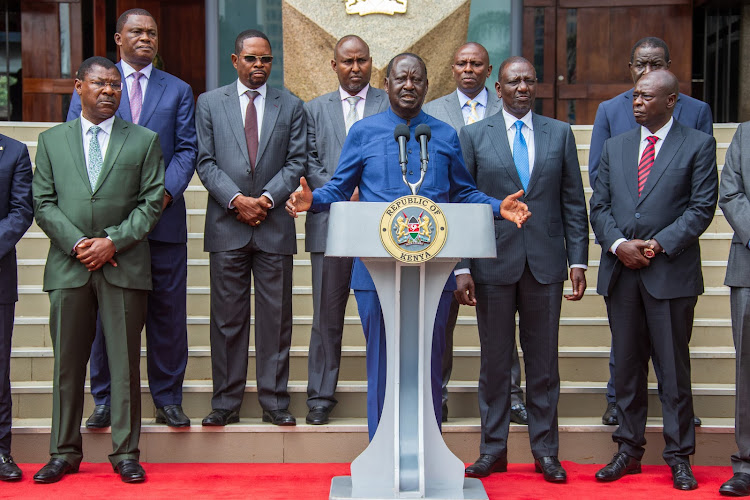- The current situation raises doubts about the government's sincerity in addressing the protesters' grievances, as evident in their continued failure to fulfil their promises.
Kenyan opposition leader Raila Odinga's recent announcement to dialogue with President William Ruto's government has been met with outrage from the country's Gen-Z protesters.
This move raises serious concerns about the opposition's commitment to truly representing the interests of the youth, who have been at the forefront of the ongoing demonstrations demanding better governance.
On Tuesday, July 9, 2024, Raila, whom the youth had requested to stay out of the picture as they demanded better governance from the Ruto administration through mass action, emerged at the KICC during the signing of the IEBC Amendment Bill 2024 and stated, “We had consultations and agreed that dialogue is the way forward.”
The heart of the issue lies in the disconnect between Odinga's actions and the core reasons behind the youth-led protests. These demonstrations, described as "tribeless, leaderless and partyless", represent a genuine grassroots movement driven by the younger generation's frustrations with the political establishment.
By inserting himself into the dialogue process, Odinga risks overshadowing the protesters' independent voice and undermining the very foundations of their struggle.
Read More
Martha Karua, NARC party leader, rightly observed in a post on X that "dialogue can only be meaningful if both players have good faith and are guided by the best interests of the people."
However, the current situation raises doubts about the government's sincerity in addressing the protesters' grievances, as evident in their continued failure to fulfil their promises.
The opposition's decision to align with the "oppressive government" that the citizens have been fighting against threatens to erode public trust in the political system further. This move is a disservice to the youth-led movement, which has demonstrated a resolute commitment to demanding accountability and transparency from their leaders.
The future of Kenya's democracy rests on the collective resolve to stand against political deceit and champion genuine integrity in governance. The path forward lies in the opposition's willingness to amplify the voices of the protesters rather than attempting to co-opt their movement. Dialogue should not be a means to quell the uprising but a genuine attempt to address the systemic issues that have fueled the discontent.




-1772102940-md.jpg)


-1772090413-1772095461-md.jpg)


-1772102940-sm.jpg)

